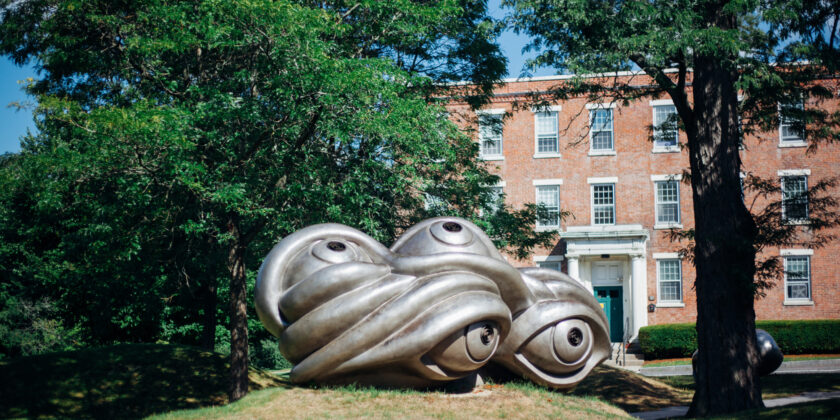Resume Magic
Yale podcast/blog: https://admissio
Michigan’s application instructions: http
Princeton’s helpful tips: https://admissio

Yale podcast/blog: https://admissio
Michigan’s application instructions: http
Princeton’s helpful tips: https://admissio

Students are invited to tell the NYT’s what they’re reading in The Times and why, this year in writing OR via a 90-second video.
Contest dates: June 6 to Aug. 15, 2025
Our Summer Reading Contest is our longest-running challenge — and our simplest.
All you have to do to participate is tell us what you’re reading, watching or listening to in The New York Times and why. Students can enter by submitting a short written response — or they can make a video up to 90 seconds long.
Don’t have a subscription? No problem! We’ll be providing dozens of free links to teen-friendly articles, essays, videos, podcasts and graphics every week from June through August.
Got questions? Everything you need is detailed below.
But if you’re a teacher who would like to have your students practice for this now, before the contest begins, note that the only rule around content is that a piece must have been published in 2025. Beyond that, we don’t care if your students pick something on sneakers, starlight, Syria or Saturday Night Live; TikTok, the tropics, Trump or Timothée Chalamet.
The announcement is available as a one-page PDF to download!
*Stay in the know! Subscribe*

Congrats to our seniors!
Arizona
Barnard
Baylor
Brown
California Institute of Technology
Coast Guard Academy
College of Charleston
Cornell – 4
Emory
Fordham
Georgetown – 2
GWU
Harvard – 2
Indiana Kelley – 2
Johns Hopkins
Lehigh
Loyola Maryland
North Carolina State
Northeastern – 2
Notre Dame
NYU
Penn State
Purdue
St. John’s
Syracuse
Tulane
University of Amsterdam
University of Arizona
University of California, Berkeley
University of California, Davis
University of California, Santa Barbara
University of Chicago
University of Colorado, Boulder – 2
University of Georgia
University of Illinois
University of Maryland
University of Massachusetts, Amherst
University of Miami
University of Rochester
University of South Carolina – 2
University of Texas, Austin
Vanderbilt
Villanova – 3
WashU
Wesleyan
*Stay in the know! Subscribe*
Writer’s block is no joke! It happens to the best of us, so don’t get too frustrated if some days you just can’t get in the groove with your writing. When it strikes, try using these ideas to help jumpstart the process:
If you aren’t getting anything down in 20 concentrated minutes, it might be time to skip to 4 and 5.
Ultimately, the only way to get over writer’s block is… to write! You can do this!
*Stay in the know! Subscribe*

The Gilder Lehrman History School program is back!
History School is open to all high school students and available free of charge. All courses are led by a History Teacher of the Year-winning educator and consist of 6 one-hour-long classes held weekly via Zoom.
Registration is now open for the following courses:
*Stay in the know! Subscribe*

Your personal statement should uniquely reflect who you are, what you value, and how you think—while also engaging and even surprising the reader.
You may be thinking, “Nothing much has happened to me! How can I surprise the reader?” Well, one of the biggest myths about the personal statement is that you can’t write a good one unless you have a “big” or tragic story to tell: “I was on my way to becoming a professional skater before I shattered my ankle,” or “I overcame a life-threatening disease then founded my own nonprofit to fund research on that disease.” While an experience like this could make for an excellent (though painful) personal statement, it could also make for…a boring essay. Although it’s sad to say, admissions officers have read many of these stories and therefore aren’t surprised or even moved by them.
Just think about it: admissions officers read thousands of essays every year, year after year. To get through them all, they have to read quickly, stopping once they figure out which “pile” you belong in (yes, no, or maybe). Your goal is to force that reader to slow down, even stop—to make them want to read your essay, to make them think, “I’ve never seen this before!” Admissions officers are more likely to have seen the “big” stories before—every year, they read thousands of essays about sports injuries and divorces, about Eagle Scout projects and difficult classes. Often, the best way to surprise the reader is to think small—to write about an unusual hobby (Sample Essay 6 in The Complete College Essay Handbook) or passion (Sample Essay 5 in The Complete College Essay Handbook)—or to write about a more common experience in an unexpected way, like discussing your parent’s divorce in the context of a violent protest (Sample Essay 4 in The Complete College Essay Handbook). Surprise can also be contextual. A varsity soccer player writing about varsity soccer? Not surprising.
A note: not all surprises are created equal. There is the pleasant, gentle “surprise party” kind of surprise, and then there is shock, which can be invoked through violent images or vulgar confessions, and which produces negative emotions—fear, disgust, anger, and more.
And…not all topics are created equal: some are very common and therefore boring, while others are too complicated to tell in 650 words or highlight privilege. You might want to reconsider writing about these for the CA essay:
Occasionally, students do have exceptional stories within these topics. For instance, maybe your grandmother raised you as if you were her own child and so her death hit you particularly hard, or maybe your parents’ stories of living through the fall of the Soviet Union sparked your consuming passion for history, or maybe failing trigonometry truly changed your life. Trust yourself to know if your story falls into one of these exceptional categories, and ask a friend if you aren’t sure.
That said, there are a few topics you should never ever write, for the personal statement or the supplemental essays, about because they act as red flags to admissions readers and will likely prevent your application from being seriously considered. These include:
Note that all of these are only red flags if they are about you—your mental health issues, your consumption of drugs or alcohol, your controversial beliefs. It is fine to write an essay that engages with one of these topics from a distance (e.g., your brother was an alcoholic, a friend pressured you to engage in risky behavior, but you refused) so long as you are still writing about your experience of that situation.
*Stay in the know! Subscribe*

Often, the subject that makes for the best essay is the one you least want to talk about. So stay open as you begin the brainstorming process, even to your most sensitive relationships and memories, and notice if there’s a story you’re afraid to tell. Maybe that is your best topic. Most importantly, don’t hold back or self-censor: don’t be afraid to show your messiness and flaws, and know that no story from your life is too small or too silly to include (as long as it’s not from when you were a very small child!).
It takes courage to be vulnerable and imperfect, to admit to your mistakes and regrets. A tip? Be courageous as you brainstorm.
The following questions are some that we use in our 1:1 work, and that you might find helpful to answer as your brainstorm:
Try to identify 6-8 (or more!) of such turning point moments and write three or more sentences about each. Turning points tend to suggest scenes with dramatic potential in addition to being moments of change and growth, and nearly all the essays our students write revolve around them. Keep in mind that turning points can be minor, like an argument with a friend about who will take charge of an extracurricular project.
Think fast:
When we work with students one-on-one, we review the brainstorming document, noting the narratives, ideas, themes, and details that interest us the most. It can be easier for us, as outside readers, to notice recurring patterns (for example, how you constantly link your ideas back to collecting objects) or to make new connections between disparate experiences and interests (like between your love for puzzles and your brothers leaving for college). Since it will be harder for you to do this for yourself, you should: 1) wait a week between completing and evaluating your brainstorm, and 2) find an outside reader who can read your brainstorm and give you feedback.
*Stay in the know! Subscribe*

The NewMu Teen Fellowship is a paid, after-school program for New York City public high school students. The Fellowship spans two school years, allowing time for Fellows to develop their creativity, critical thinking, and self-expression. They work directly with professional artists, Museum staff, and community members and gain creative and professional development through mentorship, work experience, and leadership opportunities. The Fellowship amplifies youth voices and ideas by supporting large-scale projects, including a public display of their artwork and a Youth Summit.
The Fellowship meets weekly on Tuesdays, from 4 to 6pm, and will run from September 2025 through June 2027, excluding summer breaks and school recesses. Fellows are expected to commit to the full program, consisting of two school years.
Read more here and apply by May 18!
*Stay in the know! Subscribe*
The school year is winding down, which means it’s time to start working on college admissions essays. This month, we’ll share some excerpts from our book, The Complete College Essay Handbook, starting with some personal statement tips!
First, what exactly is a personal statement like the Common Application essay?
A personal statement is a creative essay of 650 words or less that reads like a short story, memoir, or novel—not like an academic essay, textbook, or newspaper article. The best personal statements tell a story that culminates in a meaningful realization and offers the reader a glimpse of a mind in the process of thinking.
The personal statement is not the place to brag about accomplishments (student body president, team captain, founder of a schoolwide service project), or about how amazing you are (“I’m a world-changing revolutionary!”).
Although people you don’t know are going to read it, the personal statement is not a public form, like a school-wide speech. The personal statement is an intimate form, like a secret. It is the place to be honest, vulnerable, and raw, to reveal mistakes and weaknesses, to open up about an experience you’d only tell someone you were really close with, to explore what you struggle with and what scares you.
The personal statement is not “about” an event or achievement. It is about the psychological and emotional processes that occurred “behind the scenes.”
The same story, told from one angle, can be impersonal whereas, from another—told with a focus on the process rather than the outcome—can become deeply personal. Here are a few examples to help explain what I mean.
Notice how all of these negative examples focus on the superficial event: I was elected; I raised money; I tore my ACL. By contrast, the positive examples explore the story behind the event—what was going inside of the writer that either led to this event (the student body president and orphanage examples) or the internal change that resulted from it (the ACL example). They also explore intimate, potentially difficult topics.
Since the personal statement is a creative essay at its heart, there is no set formula for success—however, our process and essay samples will give you the tools and examples you need to write your own standout personal statement.
*Stay in the know! Subscribe*

The college process often amplifies anxiety among teens and their parents, yet stress is inevitable. The goal is to manage it healthily, according to Lisa Damour, a clinical psychologist, author of The Emotional Lives of Teenagers, and host of the Ask Lisa podcast.
Lisa joined Jeff Selingo on a special 30-minute edition of “Next Office Hour” last week. Let’s all give the episode a listen. Some top takeaways:
Accept discomfort. Parents should acknowledge emotional stress as normal. “We cannot prevent emotional pain in our teenagers. Rather, we should help them manage discomfort when it comes,” Damour said. The focus should be on helping teens cope constructively, like allowing space for healthy distractions or emotions rather than harmful habits
Encourage healthy coping. Crying, spending time with friends, physical activity, and mindful rest are all beneficial ways teens can process stress. Parents should be alert only when teens use costly coping mechanisms like substance use or self-criticism.
Reframe high school. Teens should focus on cultivating genuine interests and strengths rather than solely trying to impress admissions officers. Enjoying downtime without guilt is crucial for mental health.
Recognize parental roles. I loved Lisa’s analogy of the Pit Crew vs. the Tow Truck. Parents often feel pulled between supporting their kids (pit crew) and pushing them (tow truck). Constant towing suggests a teen may not be ready for college, highlighting the value of considering gap years or alternative pathways.
Dealing with rejection. College admissions isn’t always meritocratic. When teens face rejection, validate their feelings but emphasize they’ll thrive by focusing on what they can control.
The big picture? Parents and teens often overestimate how much college prestige matters.
If you don’t follow Jeff Selingo, you should. See past issues and subscribe to his newsletter. You can also find him on LinkedIn, Instagram, Facebook, Twitter, and Threads if social is your thing!
*Stay in the know! Subscribe*